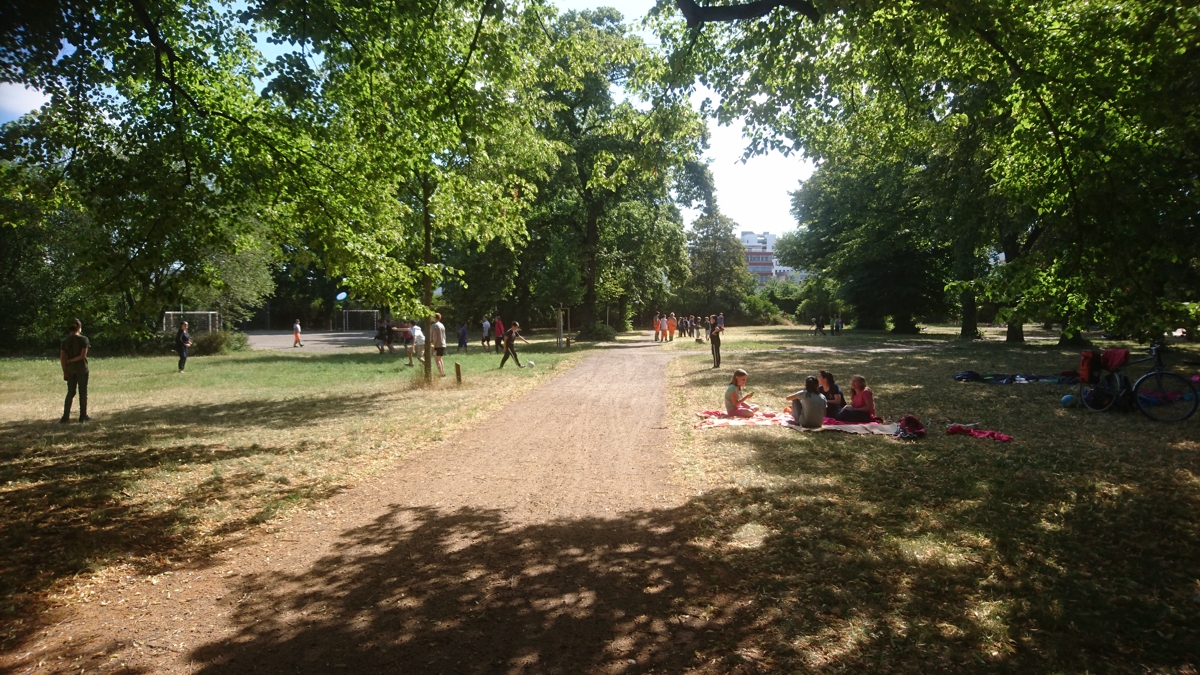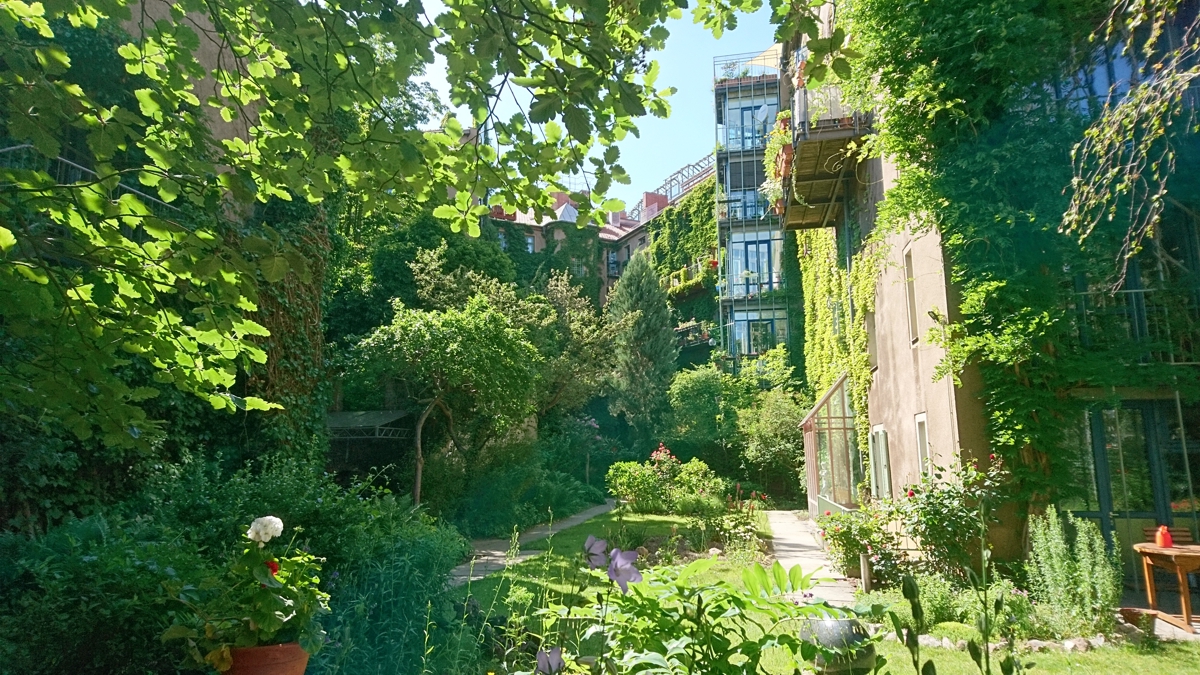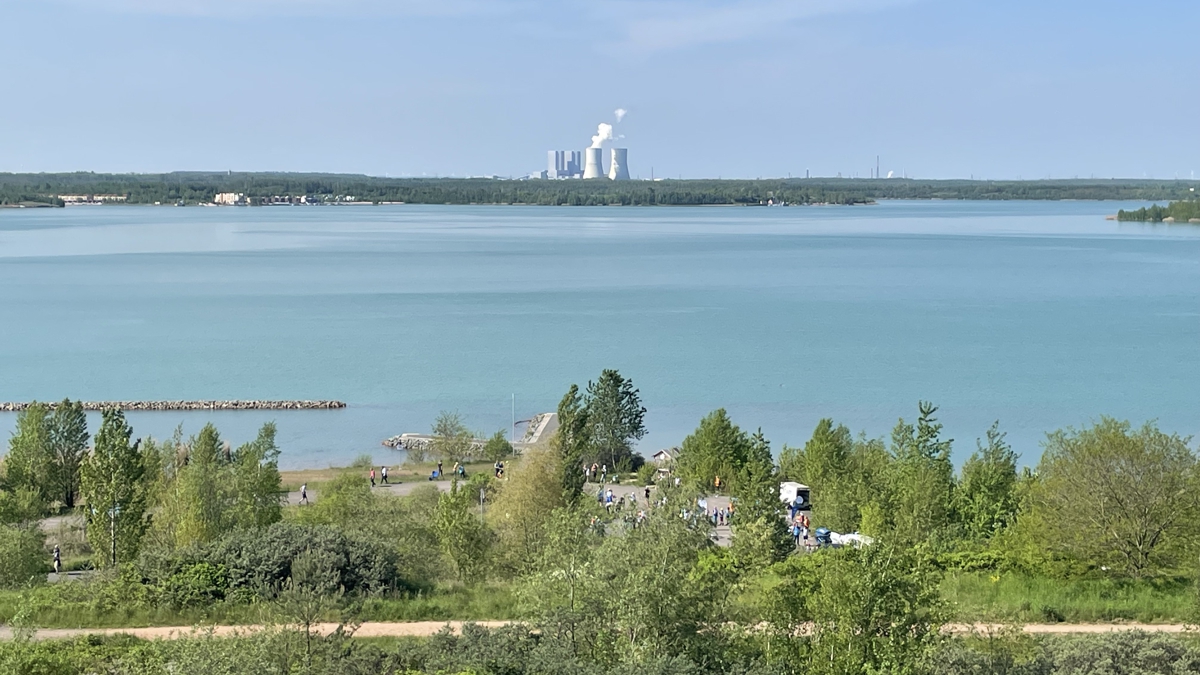


In the Digital Landscape Ecology working group, we investigate landscape ecology issues using innovative, interdisciplinary multi-method approaches. In particular, we focus on the processes of global change such as climate change, land use change and urbanisation and analyse which impacts are associated with the challenges on landscapes, but also on humans. Humans play a central role in our landscape ecology research.
We are interested in the impact of green and blue urban landscapes on urban environments, e.g. under global change related extreme conditions such as heat waves and drought and associated human health aspects.
We also investigate which nature-based solutions are effective in urban and peri-urban areas for climate change adaptation and mitigation, and whether these solutions are fairly distributed and implemented in regard to environmental justice. Health impacts of urban life, including mental health in the context of global change on specific vulnerable groups such as children and the elderly are explored. We also look at how global land use change, which is, for example, driven by advancing urbanisation and settlement expansion, affects ecosystems and associated ecosystem services, and the consequences of potential ecosystem degradation on human health.
How we work in digital landscape ecology?
We combine natural science research approaches with social science methods and therefore work with interdisciplinary approaches. Methodologically, we investigate case studies that spatially focus on anthropogenically modified areas. To generate primary data, we combine site-specific environmental measurements (e.g. air temperature, air humidity, soil moisture, air quality) with socio-empirical working methods such as surveys, health experiments, and observations in innovative multi-method approaches. The data generated in our projects are analysed and further substantiated with digital, geostatistical, GIS-based methods.
We apply secondary data-based research approaches with remote sensing data, satellite data, land use and land cover data and also secondary data-based socio-economic data.
Urban ecosystem services, health, and environmental justice in global change
Global change includes worldwide changes and processes associated with climate change, but also with urbanisation and land use change. For example, we can observe the effects of climate change through drought, heat, heavy rainfall events and the associated stresses on the functionality of ecosystems. These consequences are particularly noticeable in urban systems, where values accumulate and the increase in population density is in some cases very high with potential adverse effects to human health. Extreme events such as heat waves intensify already existing challenges through the formation of the urban heat islands. Our research focuses on how, under these given challenges, urban nature or urban ecosystems provide ecosystem services such as climate regulation and recreation. We investigate the climate regulation function of urban parks and urban blue spaces such as lakes, rivers and canals. We are also interested in health-related physical but also mental impairments associated with heat, but also with urban air pollution and city life as a whole. In regard to environmental justice, we analyse whether these urban environmental burdens are spatially clustered for certain vulnerable population groups and whether there are so-called “stress hotspots” or also recreational-cool spots in a city.
Nature-based solutions for climate change adaptation and mitigation.
Nature-based solutions (NBS) use natural elements as an instrument to mitigate societal challenges such as those associated with climate change. Climate change adaptation and mitigation are key objectives for implementing nature-based solutions. We investigate how certain nature-based solutions, such as urban trees, retention areas, green roofs, but also newly developed parks function as a nature-based solution and how they are implemented in urban planning strategies. We look at governance processes from planning to implementation and also examine in what way these processes are participatory and socially just. Social-ecological and social-ecological-technical approaches are brought together, especially in regard to climate adaptation, sustainability and resilience.
Landcover and Landuse changes under Global Change
Anthropogenically driven land use changes such as settlement expansion have a drastic impact on landscape functions, ecosystem services and biodiversity. Using specific study sites, we investigate how landscapes and landscape structures are changing as a result of anthropogenic influences, and whether their contribution of ecosystem services is being damaged. We use remote sensing-based Land Use-Land Cover-Change (LULC) analyses and calculate indices such as the NDVI or other landscape metrics.
Head of group


30167 Hannover













